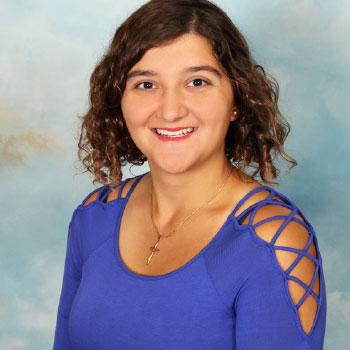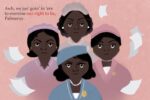A junior at Bethune-Cookman University and Mass Communications student, J. Gino Cyrus had his hip-hop musical, “Mary’s Children,” showcased three times this past year and doesn’t plan to stop any time soon. With his great work ethic and strong values, Cyrus hopes to someday showcase his theatrical pieces on Broadway.
When he’s not working on a script for a new play, he creates graphic designs for the Center for Information Technology at B-CU or creates media content as a multimedia production specialist for B-CU Web Services. In between managing his academic and work commitments, he finds the time to produce beats for his original musical compositions and read.
A recipient of the Advertisement Design of the Year Award for the 2017 Massy Awards and coming in 2nd place for his Academic Showcase, Cyrus achieved great success for his hip-hop musical “Mary’s Children.”
Elizabeth Lucy Ivanecky: When did you first become interested in media?
J. Gino Cyrus: My interest in media began in high school. I was in the TV magnet program at Dr. Philips High School and then transferred to Edgewater High School. I was a magnet student in TV production, and graphic design there also. That’s where the interest initiated.
ELI: So, now you’re a junior in mass communications at Bethune-Cookman University. Why did you choose this university?
JGC: What the school was founded upon was in correlation with what I believe in as a student who wants to succeed.
ELI: What are some of these values and beliefs?
JGC: Dr. Mary McLeod Bethune founded the university upon a $1.50 with five little girls—Lena, Lucille, Ruth Warren, Anna Geiger and Celest Jackson. So, with those little resources she had then, she was able to not only believe in herself, but also convince others that opening the school was a great idea.
With a vision for how the children of the future would benefit from her actions, Dr. Bethune believed in her cause. As an African-American woman, she decided she would not let the many injustices, systematically put up against her, interfere with her dream. I am a part of that dream because I attend her school now. I wrote “Mary’s Children” about her which is a modern-day version of what she stood for.
ELI: Now that you mentioned the play, tell me more about “Mary’s Children” for which you were the playwright. What is the play about?
JGC: “Mary’s Children” is a hip-hop musical depicting the reincarnation of Dr. Bethune in the 21st century. I’m honored to say that I not only wrote this musical, but I wrote and produced each track in the production.
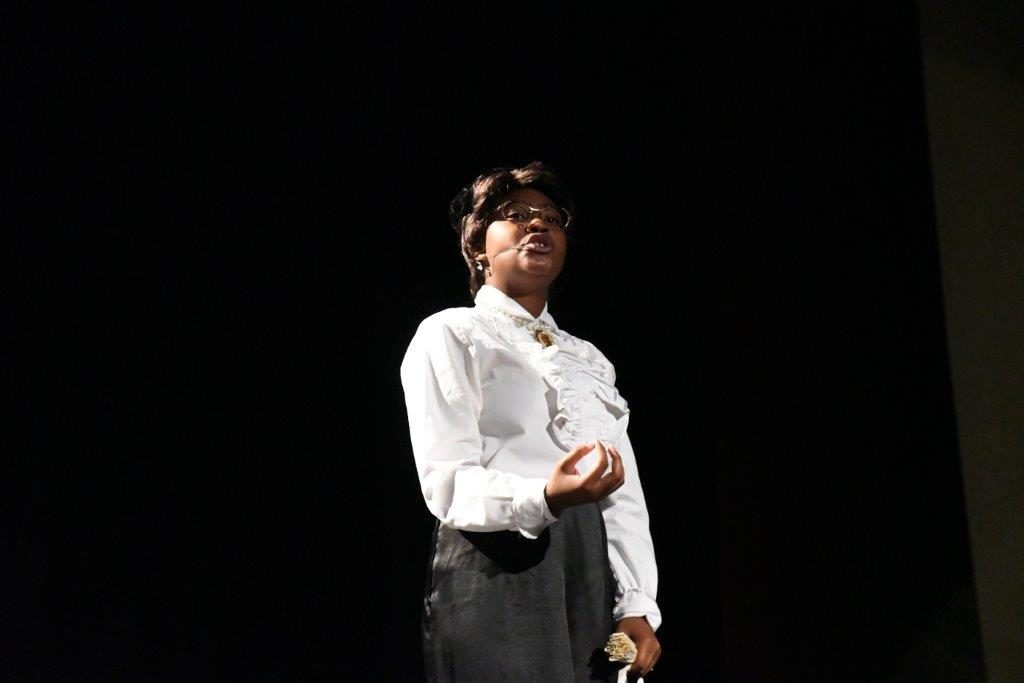
ELI: Why did you decide to feature music so prominently in your play and why hip-hop specifically?
JGC: I believe the power of music presents an opportunity to entertain and educate. All genres of music do this, not just hip-hop. I wondered if Dr. Bethune came to life and heard the music of today, how would she feel about it. What would she do as a result of hearing our music? The origin of hip-hop is to raise consciousness of communities. I wanted to tell her story through a hip-hop perspective to break the barrier between generations. You’re not only getting educated, but entertained as well.
And if by any chance, you’re not educated by it, you have no choice but to be entertained by it. I modernized the play through hip-hop because I know the power of music. So did Dr. Bethune since we have a concert chorale at school and everyone knows Cookman for the band. Music is very powerful. I may not be in a band, but I can make beats and rap, so I use my talents to honor her legacy by establishing my own.
ELI: Can you tell me about your role in “Mary’s Children” and the work your role entailed?
JGC: I was the scriptwriter, screenplay writer, graphic designer, videographer, music producer, editor, photographer and technical director for the play. My work included going to rehearsals every day and working with the set. We had to get creative, with the little resources we had, to make objects, for a classroom scene, that mimicked a sitcom.
ELI: What was the most challenging scene to create?
JGC: The hardest part was the reincarnation scene where we had to make it look like Dr. Bethune came back to life from the dead—I used video editing and videography skills to make this happen. When she reincarnates, she’s looking around the campus seeing the progression that the school has made because some of the buildings that are on campus now are not the same ones when she was still alive.
I took photos that stood in the background as Dr. Bethune looked around the campus on set. This idea required me to give the audience exactly what I’m speaking of because if I say Curtis Hall or White Hall, someone who doesn’t go here doesn’t know what I’m talking about. We had a death line as she came back to life; there was a heartbeat showing she was coming back. I had to get creative in reincarnating her so that everyone knew what was going on.
ELI: You certainly put a lot of thought into this play. How long did it take you to create the play?
JGC: I started writing it during Christmas break. It took me a month. However, I started working, in my free time, on the beats for the music in the play four years ago. I already had beats made, prior to having the “Mary’s Children” idea, but I always work on new beats. As far as writing the lyrics for the music, it took me about two weeks.
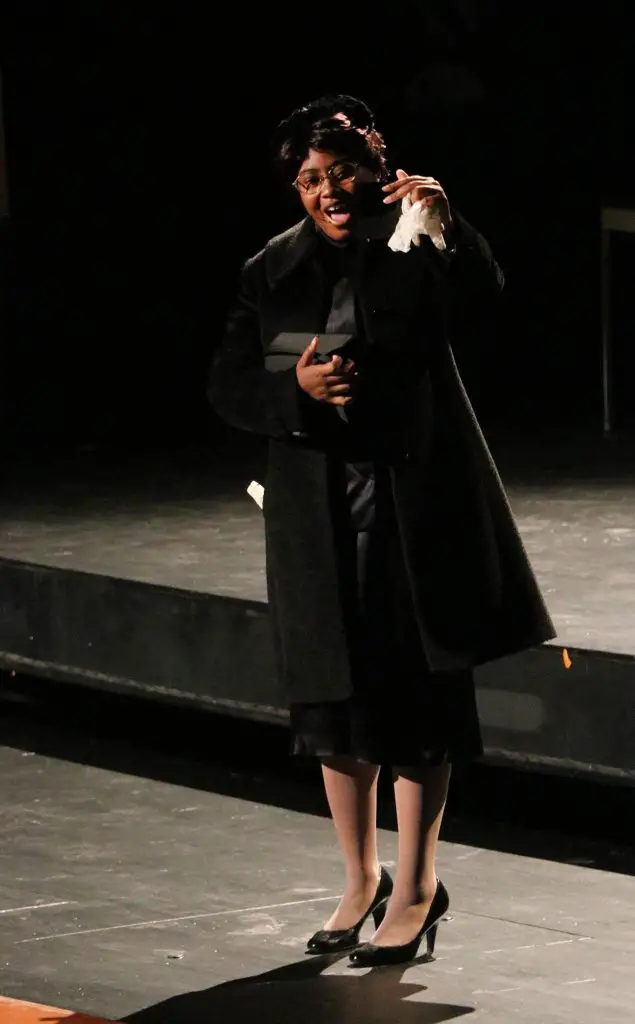
ELI: This was clearly something you had worked on, at least in part, for a long time. Was this something you knew you wanted to write back in your freshman year?
JGC: The idea sparked in my mind in my sophomore year in Professor Isaac Caputo’s Intro to Broadcast Production class. I was assigned to present an idea in class that would be a sitcom and my idea was the reincarnation of Dr. Bethune. So, “Mary’s Children” was originally a sitcom. The play is the sitcom’s first episode of a ten-episode first season. I had these episodes, but I needed to get the idea out there.
You can write the greatest play in the world, but if no one sees your play, it doesn’t really matter. It matters to the writer, but you want to get your message out there. I couldn’t get the actors and actresses to record or a director to lead the project, due to a lack of resources, so I thought how can I film the first episode? I went to the theatre department and said I have this idea, but not only the idea, I have the screenplay too, so can we do anything about it? They said sure as long as you become a theatre minor.
Thereafter, every week during class, we worked on Tuesdays and Thursdays from 4 p.m. to 5:30 p.m. on the screenplay. Professor Julius John, who I have to thank for conceding to the showcase of my play, allowed his Acting 3 class to perform my show. And my play showcased in the spring semester, two nights, April 27 and April 28, at the Black Box Theatre. Tickets went for a $1.50 referencing Dr. Bethune who founded the school upon said amount.
The show sold out both nights. I was surprised—I thought “I hope people come out.” It was requested to be performed again during Founder’s week on October 4 and it did. During Founder’s week, we performed the play at the Mary McLeod Performing Arts Center which seats up to two thousand and five hundred people. The Black Box Theatre seats up to seventy people. So, it went from a small theatre to a large performing arts center. It’s a progression I’m proud of.
ELI: Do you think you will ever turn the idea into the sitcom you originally envisioned?
JGC: I’m going to continue writing and trying to get my ideas out there, so it may lead to that. That would be mind-blowing for me since it was just an idea that started out in the class and the sitcom came to life on the stage.
ELI: So, you showcased your play again this past October during Founder’s week. What is it exactly?
JGC: This is the first year it took place. Founder’s week is in dedication to Founder’s Day which is October 3. October 3rd, 1904 references Dr. Bethune founding Daytona Literary and Industrial Training School for Negro Girls which, in 1919, changed to Daytona Normal and Industrial Institute. In 1923, the school collaborated with Cookman Institute in Jackson, Florida, to create Daytona-Cookman Collegiate Institute, but the official name changed to Bethune-Cookman to reflect Dr. Bethune’s founding contributions to the school.
ELI: Why did you decide to write a play about the reincarnation of Dr. Bethune in today’s society?
JGC: I wrote this play because I feel I wouldn’t be continuing the legacy of Dr. Bethune to the extent I am capable of doing. Not only does she have a legacy, but I have a legacy myself. My actions are a continuation of my caretakers, my parents, but at the same time, even though I never met Dr. Bethune, I see her in the same motherly perspective because she paved the way for me to be able to have opportunities.
As an African-American from a time when African-Americans were not allowed to go to school with everyone else, and were purposefully belittled from doing things such as reading, Dr. Bethune still acted upon the idea for change she wanted implemented. For her to start a school even though her parents were slaves, the fifteenth of seventeen children working alongside her parents in the fields, she chose action instead of passive reaction. If I hadn’t acted upon implementing the play, I have no excuse for my inaction.
ELI: How do you think Dr. Bethune is a source of inspiration for many at the university and for the black community?
JGC: The school wouldn’t exist if she didn’t do what she believed in. She lived in an era when she was told she wasn’t allowed to prosper. She took into consideration that if you have faith in yourself and faith in God, nothing can stop you. If it wasn’t for her efforts, the black community wouldn’t be able to participate in higher education and have equal opportunity to education as everyone else does in this country.
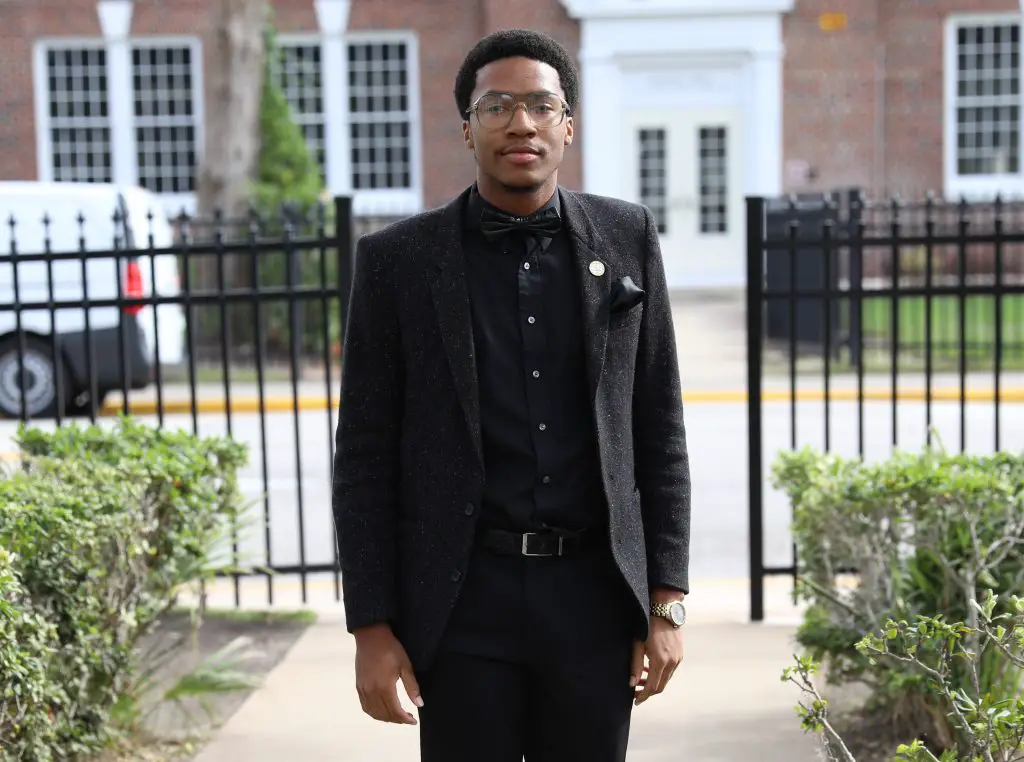
So, the black community has no right, but to respect her and thank her for that. She is also the only African-American woman to have a college named after her. There are plenty of middle schools and high schools named after Dr. Bethune, but we’re the only college named after her. That says something.
ELI: How is this play about the students at B-CU?
JGC: The fictional students in the play are freshman college students who are unknowledgeable about Dr. Bethune’s contributions. They just want to have fun. They don’t care to acknowledge the people that paved the way for them. As far as the actual students that attend the university, we are knowledgeable about Dr. Bethune. I thought it would be more clever to create students who witnessed Bethune’s reincarnation and follow how they react to her reactions of our present time.
ELI: You mentioned that actual B-CU students are aware of Dr. Bethune’s legacy. How is this so?
JGC: There is a “Freshman Seminar” at B-CU to learn more about Dr. Bethune. In this class, there’s a book we’re required to read called “Mary McLeod Bethune in Florida: Bringing Social Justice to the Sunshine State” by Dr. Ashley N. Robertson Preston who is the curator at B-CU. The play would not have received so much attention if students were unaware and did not advocate her story. That’s an indicator that we do want her story being told.
ELI: Are you currently working on any major media projects right now such as “Mary’s Children?”
JGC: I wrote another screenplay called “Florida Fries” which I would like to put into production. I’m trying to get it showcased by the theatre department. It’s up to their discretion.
ELI: What is “Florida Fries” about?
JGC: It’s about a high school junior who has no intention of going to college and gets a fast food job without her father’s consent. The fictional, fast food place is called Florida Fries.
ELI: That sounds interesting! What are your long-term future aspirations?
JGC: I would like to get “Mary’s Children” showcased at other schools even outside my state. If any of my plays could make it to Broadway, that would be a major accomplishment to me. I have an interest in starting my own PR firm one day. Also I would like to get my doctorate—hopefully one day I’ll be called Dr. Cyrus. I would like to get out at least thirty screenplays within my lifespan to the public. And I want to give back to those who paved the way for me.
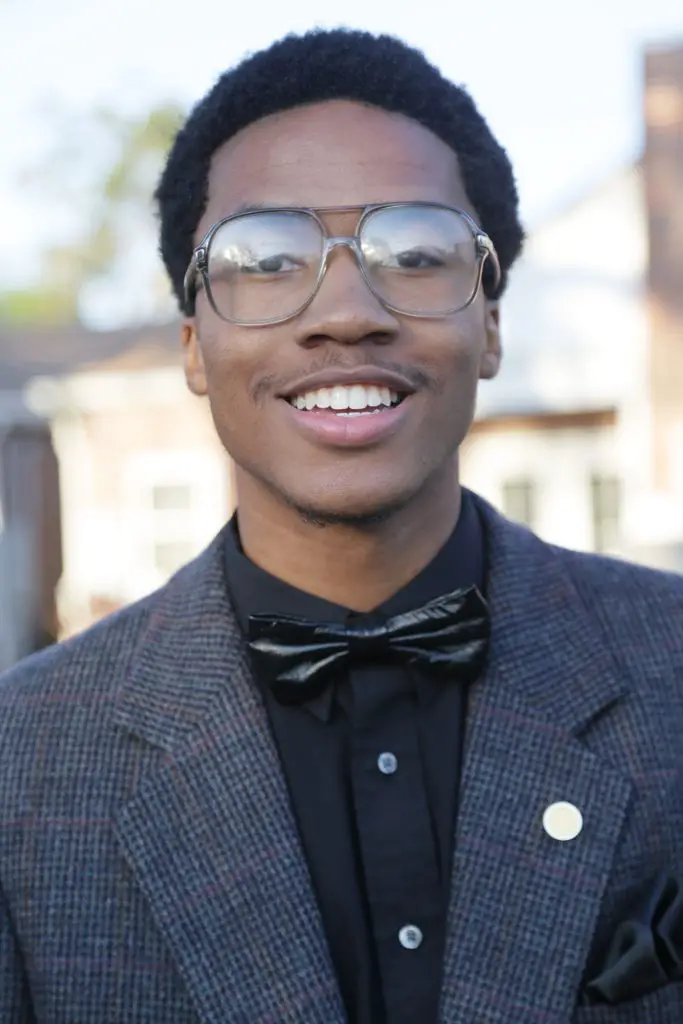
ELI: Those are big dreams. How would you give back to society?
JGC: Well it’s one thing to give back financially, but I would like to give my knowledge in some form or fashion. Be it through a book tour or touring places and giving talks. Basically, working with people who were on the come-up with me.
ELI: What value does theatre hold in our society today?
JGC: Theatre has been and always will be immensely invaluable in our society. The time in which an audience puts their own life to a halt just to sit down and watch a live theatrical performance is essential to the human experience. It forces the person in the audience to face the circumstances that the characters in the play are dealing with. In result, the audience leaves the theatre not only entertained, but also walks away with lessons that can be applied to their own life.
ELI: Why do you think it’s important for students, and by extension working American citizens, to go and see a play?
JGC: Anyone who identifies as a student, regardless of the degree they’re pursuing, should venture out to watch a play. One reason being is that watching a play is an opportunity to be inspired. Although I am not able to speak for all students, I can speak for myself. As a student, I’ve noticed I perform my best when I’m inspired.
There are plays subjected toward just about anything one can imagine. If one does research, I guarantee not just any student, but also any person will eventually find a play that sparks their brain. So, be sure to find one! I believe that American citizens should go see plays, particularly ones that touch upon American history, in order to remind ourselves how far we have come and how far we must go as a country.




